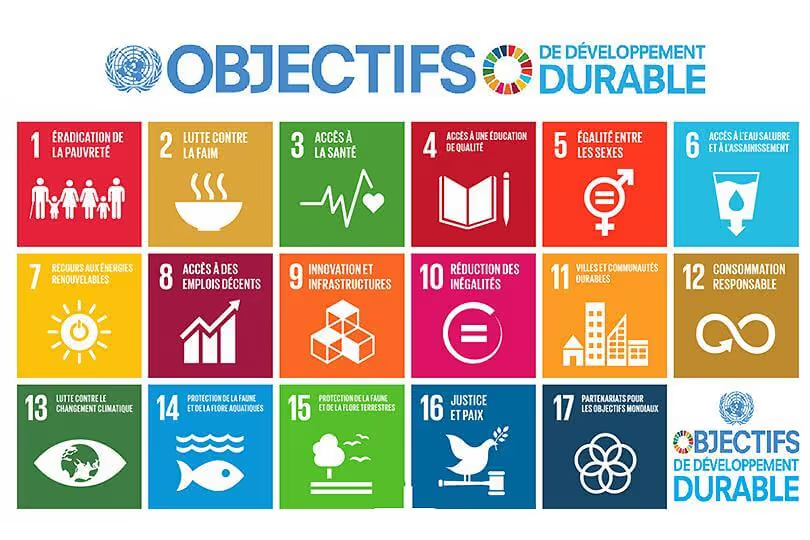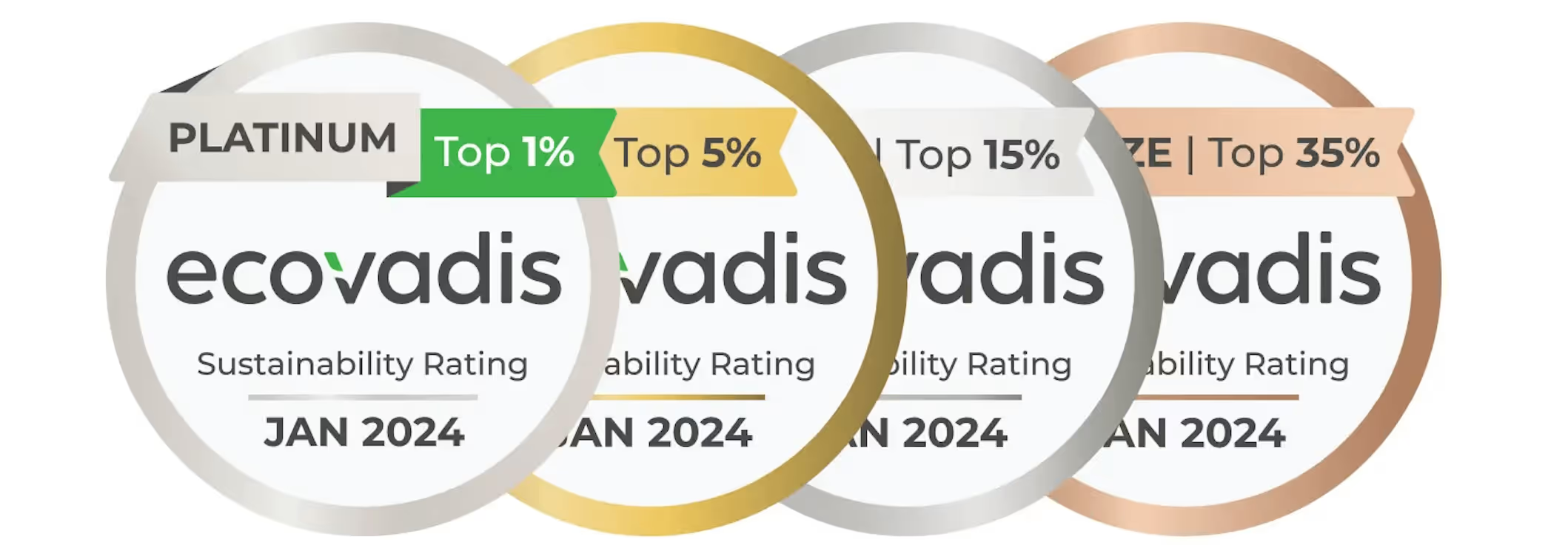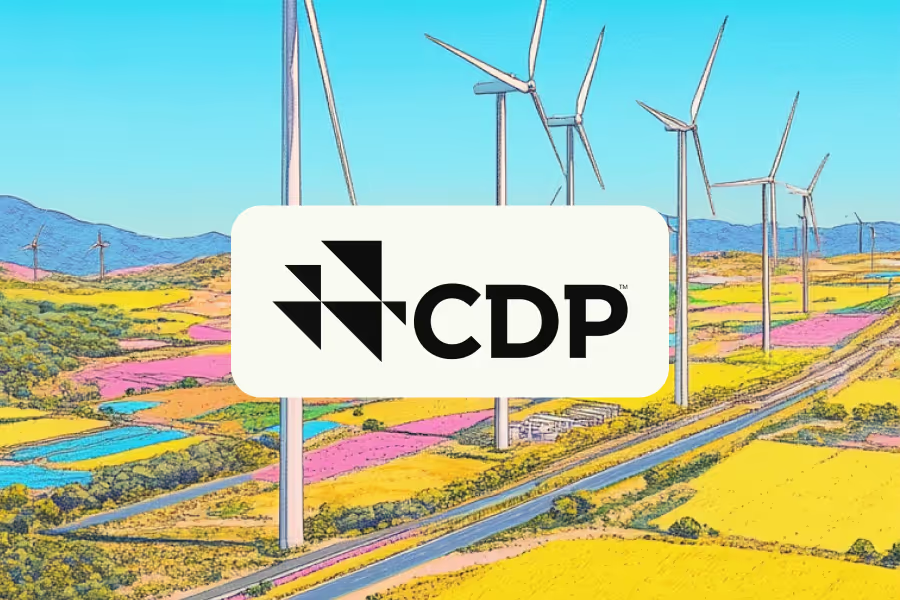You have structured and implemented a CSR approach, and you now want to highlight and communicate it internally and externally? In this case, you have probably identified obtaining a CSR label as one of the levers that will allow you to promote your efforts with your customers, suppliers, employees or even your investors.
But between Lucie 26000, B Corp, EcoVadis or even a sectoral label, how do you choose? The multiplication of CSR assessment systems is such that it is becoming more and more complex to navigate, and that many struggle to differentiate between label, certification, evaluation, reference framework.
If you too are having trouble finding your way around, don't worry: we'll explain everything in this article to help you make the difference between:
What is the difference between a guiding principle, a standard, a label, an evaluation, a CSR certification?
To help you find your way around, here is a simple definition of the different labels, certifications, etc. and their uniqueness:
CSR guiding principles
Guiding principles are reference texts explaining how to implement a complete or partial CSR approach within an organization. These texts explain in detail what an organization must put in place in order to be considered responsible on a certain number of dimensions such as the environment, the social or even Ethics.
The standards very often serve as the basis for CSR labels, which are largely inspired by them to build their evaluation criteria - this is for example the case of B Corp, which combines its criteria with the 17 UN Sustainable Development Goals.
Regardless of labels, these standards can be used as guides to integrate a responsible approach within their organization. They are and are generally the sources of inspiration for labels or certifications.
The 17 UN Sustainable Development Goals (SDGs)
In September 2015, the 17 SDGs were unanimously adopted by the United Nations (UN) as part of the 2030 Agenda, a program to ensure the world's transition to sustainable development.
To facilitate the implementation of the 17 SDGs, the Global Reporting Initiative (GRI), the United Nations Global Compact and the World Business Council for Sustainable Development (WBCSD) created an SDG guide in 2015: the SDG (Sustainable Development Goals) Compass.
This SDG Compass makes it possible to align their strategy and operations with the 17 SDGs through concrete instructions and to provide a framework.

The United Nations Global Compact
The United Nations Global Compact is an initiative launched in 2000 by the United Nations to encourage businesses to adopt responsible practices. This pact is based on 10 universal principles:

The Global Compact is also part of a wider dynamic, by supporting the SDGs adopted by the UN in 2015. It encourages organizations to play a key role in achieving these goals through their actions.
Note that the commitment to the Global Compact is voluntary and accessible to all. There is no constraint on numbers of employees or specific sectors.
CSR standards
It is a reference document that establishes rules, guidelines or technical characteristics to be followed to ensure that products, services or processes meet specific criteria of quality, safety, etc.
They are generally created by international, national, or sectoral standardization bodies, and developed by groups of experts.
GRI - Global Reporting Initiative
The Global Reporting Initiative is an international, non-profit and independent initiative that offers a framework and a number of indicators to standardize statements on:
- CSR strategy
- CSR performances
- The social and the ecological
- Governance
- ethical policies and actions
- stakeholder engagement
In addition to these common dimensions, there are indices and indicators specific to the business sector.
One of the benefits of GRI is the standardization of extra-financial reporting methods and the harmonization of measured indicators, allowing the comparison of quantitative impacts. It is the most used frame in the world.
ISO 26000
ISO 26000 is the reference in terms of CSR: it is based on major international founding texts (World Labour Organization, etc.) in order to propose a holistic approach to implement a sustainable performance approach.
It breaks down social responsibility into 7 central questions covering all social and societal issues:
It does not replace other CSR instruments and initiatives, but aims to complement them by offering a common international language around the concept of responsibility.
The standard is the basis for many labels: this is for example the case of Lucie 26000 or the Entreprises Engagés label.
AA1000 Standard Insurance
The AA1000 is a series of internationally recognized standards for sustainability assurance and management. Developed by AccountAbility, an international non-profit organization, they provide a framework for strengthening the credibility of extra-financial performance statements and promoting better consideration of stakeholder expectations.
The AA1000 is based on three main principles: inclusiveness, materiality, and responsiveness.
These standards are often used as a complement to reporting frameworks such as the GRI to ensure greater transparency.
The AA1000 also allows the certification of the verification of extra-financial reports, ensuring that the information published is reliable, complete and in accordance with the expectations of stakeholders.
CSR labels
Getting your company certified consists in having it evaluated in order to attest that the policies and actions implemented, as well as the results obtained, meet a certain number of quality criteria defined by a recognized standard. The labels are mainly used to communicate with consumers.

B Corp
The B Corp label is aimed at organizations that seek to balance profit and positive impact, by integrating ethical practices at the heart of their strategy. It values and certifies companies that take into account all their stakeholders and not only their shareholders.
Lucie 26000
The Lucie 26000 label is a French certification based on the ISO 26000 standard, which assesses companies according to their level of commitment to social responsibility (CSR). This label is based on seven pillars, such as governance, respect for human rights, the environment and good business practices.
SME+
The PME+ label is dedicated to small and medium-sized French companies that are committed to a social responsibility (CSR) approach. This label recognizes SMEs that adopt environmentally friendly practices, that are involved in the well-being of their employees and in their local community, while maintaining responsible governance.
Fair Trade
Fair Trade, or Fair Trade, is a label that guarantees that products are produced under ethical conditions, with a fair income for producers in developing countries. It ensures commercial practices that respect human and environmental rights and social standards, thus promoting fairer and more sustainable trade.
Positive Company
The Positive Company label distinguishes companies that seek to generate a positive impact on society and the environment. It assesses their commitment to contribute to the common good through their activities, products and governance, going beyond simple profitability goals to adopt a sustainable and beneficial long-term vision.
CSR evaluations
A CSR assessment is a tool that analyzes and measures the sustainability performance of companies. Unlike a label, it will not be a question of saying whether the company meets the criterion or not but rather of giving a score with a harmonized framework. This allows customers, investors, and other stakeholders to be able to compare a company's maturity on these topics.
EcoVadis
EcoVadis is an evaluation platform that analyzes CSR performance on four axes: environment, human and labor rights, ethics, and responsible purchasing. They are rated out of 100 and can get medals (bronze, silver, gold, platinum) based on their score. In general, companies are going to ask their EcoVadis suppliers.

CDP (Carbon Disclosure Project)
The CDP initially assessed companies on carbon and is now opening up to water and forest management. They are rated from A to D on their transparency and their action to reduce their ecological footprint. It is an effective tool to meet the needs of investors and to have harmonized data.
Sustainalytics
Sustainalytics is an American ESG rating agency that assesses companies on environmental, social, and governance criteria. It is particularly used by investors to understand the ESG risks that companies face and how they respond to them. Their analysis makes it possible to classify them according to their exposure and management of ESG risks.
CSR certifications
A certification is a formal process by which an independent body certifies that a company meets specific social responsibility standards or criteria. It confirms that the company has incorporated responsible practices into its management and operations, covering aspects such as the environment, employee rights, business ethics, and societal impact.
ISO 9001
This standard focuses on quality management. It provides a framework for improving customer satisfaction, process efficiency, and quality management within the company. It applies to all types of businesses and focuses on the quality of products and services.
ISO 14001
It is a standard dedicated to environmental management. It helps businesses minimize their impact on the environment by implementing a management system to optimize the use of resources, reduce waste, and manage environmental risks.
ISO 45001
This certification is focused on health and safety at work. It makes it possible to identify and manage risks related to the health and safety of employees, while reducing workplace accidents.
ISO 50001
This standard focuses on energy management. It helps businesses improve their energy performance by reducing their consumption and energy costs while limiting their environmental impact.
Committed to CSR
This French label, based on the ISO 26000 standard, assesses companies on their social responsibility. Contrary to standards, Engaged RSE focuses on social, environmental, ethical and governance aspects, but without having a strict normative nature. It is a guide to structure their CSR approach.
AT 8000
SA 8000 is a standard focused on working conditions. It focuses on ensuring respect for the rights of employees, by covering aspects such as forced labour, safety, remuneration and non-discrimination.
LEED (Leadership in Energy and Environmental Design) - Industry Focus
LEED is an international certification that assesses environmental performance buildings. It focuses on energy efficiency, the sustainable use of materials, and the indoor environmental quality of buildings. It is one of the main certifications for green buildings, focused on sustainable construction and management.
BREEAM (Building Research Establishment Environmental Assessment Method) - Industry focus
BREEAM is another environmental certification for buildings, often compared to LEED. It also assesses the sustainability of buildings, but with a broader framework, covering more aspects related to the environment and the ecological performance of buildings. BREEAM is of British origin and places more emphasis on aspects premises and contextual real estate projects.
Conclusion
The best way to choose among all of these options is to look at the expectations of your stakeholders, expectations based on your industry and what the competition is doing.
Ask yourself the right questions:
- Do you need to prove your CSR performance to your customers, large organizations? Choose EcoVadis instead.
- Are you a French SME and do you want to promote your local and responsible actions with your customers? The PME+ label will be a very good choice.
- Do you work in textile production or do you have supply chains in developing countries? The Fair Trade label will be adapted.
- Do you want to assess and reduce your environmental impact in the management of your buildings? Choose LEED or BREEAM certification.
Bon à savoir : Lorem ipsum dolor sit amet, consectetur adipiscing elit, sed do eiusmod tempor incididunt ut labore et dolore magna aliqua. Ut enim ad minim veniam, quis nostrud exercitation ullamco laboris nisi ut aliquip ex ea commodo consequat. Duis aute irure dolor in reprehenderit in voluptate velit esse cillum dolore eu fugiat nulla pariatur.

.avif)
.avif)


